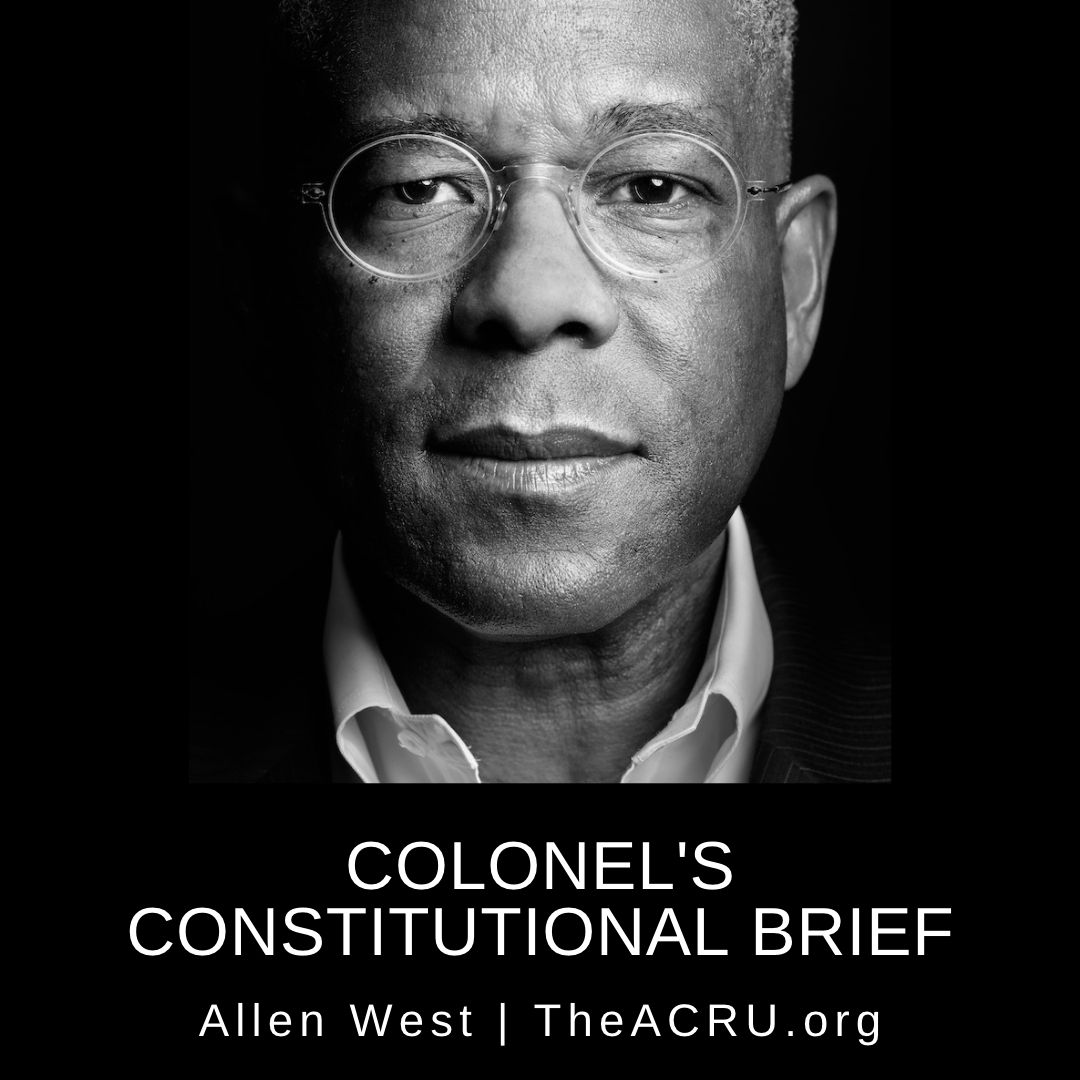Klukowski: Scalia Says Bills to Protect Special Counsel from Firing are Unconstitutional
ACRU Staff
October 2, 2017
This column by ACRU General Counsel Ken Klukowski was published October 1, 2017 by Breitbart.
The Senate Judiciary Committee held a hearing on Tuesday on legislation that would limit the ability of a president or attorney general to fire a special counsel who has been appointed to investigate high-ranking government officials. Unfortunately for the senators pushing the bill, this legislation is unconstitutional, for all the reasons Justice Antonin Scalia explained in a historic dissent that should doom this bill in a legal challenge.
In Article II, Section 3 of the Constitution, the Take Care Clause commands that the president “shall take care that the laws be faithfully executed.” Because he is only a single human being, most of a president’s execution of the nation’s laws is performed by government officials who serve under him in his administration.
That is why the Appointments Clause of Article II, Section 2 of the Constitution, provides that the president:
… shall nominate, and by and with the Advice and Consent of the Senate, shall appoint Ambassadors, Public Ministers and Consuls, … and all other Officers of the United States … which shall be established by Law: but the Congress may by Law vest the Appointment of such inferior Officers, as they think proper, in the President alone, in the Courts of Law, or in the Heads of Departments.
Pursuant to this grant of power, the president makes over 4,100 appointments. The highest-ranking 1,200 of these must first be confirmed by the Senate, and the lower-ranking ones are appointed directly by the president, or by Cabinet secretaries or other agency heads.
For most of America’s history, everyone acknowledged that the president’s constitutional power to appoint executive officers necessarily included the power to fire any current officer so that he could then appoint someone else as a replacement. The American people elect the president, and everyone else serves at the pleasure of the president to carry out the agenda that the voters elected him to enact. Those officers answer to the president, who in turn answers to the electorate. This is the principle of the “unitary executive.”
The Supreme Court upheld this principle in its 1926 decision, Myers v. United States, where the Court reasoned that the Framers of the Constitution ensured that:
… not only did the grant of executive power to the President in the first section of Article II carry the power of removal, … the power of removal of executive officers was incident to the power of appointment… [so] as a constitutional principle, the power of appointment carried with it the power of removal. The reason for the principle is that those in charge of and responsible for administering functions of government who select their executive subordinates need in meeting their responsibility to have the power to remove those whom they appoint.
Two years later in its 1928 case Springer v. Philippine Islands, the Court built upon Myers, holding, “Legislative power, as distinguished from executive power, is the authority to make laws, but not to enforce them or appoint the agents charged with the duty of such enforcement.”
The constitutional rule from Myers and Springer is that Congress cannot make a law granting any executive officer the right to hold onto office once the president decides to remove him.
However, the Supreme Court moved to the left in 1935 in Humphrey’s Executor v. United States, breaking with that rule, holding that at least in some situations, Congress could pass laws restricting the president’s ability to remove a subordinate.
But even Humphrey’s Executor applies only to certain officers who have some powers that resemble legislators or judges, such as commissioners on the Federal Communications Commission or members of the National Labor Relations Board. It does not apply to executive officers who exercise purely executive functions; they continue to serve at the pleasure of the president.
Even in its more left-leaning eras, the Supreme Court has continued to adhere for the most part to the constitutional norm. For example, when Congress in the 1970s created the Federal Election Commission (FEC), originally Congress was empowered to appoint two of its six commissioners.
In Buckley v. Valeo, the Court ruled that the Constitution’s separation of powers requires that the only branch of government that can create federal offices — Congress — must also be the one branch that can never then appoint someone to fill the office it had just created. The Court struck down the appointment provision in this federal law for violating the Constitution’s Appointments Clause. Now all FEC commissioners are nominated by the president, and confirmed by the Senate.
The Supreme Court made clear as recently as its 2010 case Free Enterprise Fund v. Public Company Accounting Oversight Board that the principle of democratic accountability in Myers and Springer is still a constitutional requirement. Chief Justice John Roberts explained that Article II:
… confers on the President the general administrative control of those executing the laws. It is his responsibility to take care that the laws be faithfully executed. The buck stops with the President. The President therefore must have some power of removing those for whom he cannot continue to be responsible.
Against this backdrop, it becomes clear that the legislation Congress is now considering to restrict the ability to fire a special counsel is in fact trying to revive the concept of an independent counsel, which for twenty years was authorized by the Ethics in Government Act of 1978.
But as all of these cases show, even when independent counsels were authorized by statute, they were nonetheless unconstitutional.
The Supreme Court had to perform linguistic gymnastics to uphold that statute when it was legally challenged in its 1988 case Morrison v. Olson. Yet even in doing so, the Court could not deny, “There is no real dispute that the functions performed by the independent counsel are ‘executive.’”
Justice Antonin Scalia dissented in Morrison in the most famous dissent in this area of law (called administrative law), so much so that most law students read his dissenting opinion in law school. He argued that any federal prosecutor must be removable by the president at any time.
“The Founders conspicuously and very consciously declined to sap the Executive’s strength in the same way they had weakened the Legislature: by dividing the Executive power,” Justice Scalia explained. “Proposals to have multiple executives, or a council of advisers with separate authority were rejected.”
Surprised that the statute before him was such a flagrant violation of the Constitution’s separation of powers, Justice Scalia continued:
Frequently an issue of this sort will come before the Court clad, so to speak, in sheep’s clothing: the potential of the asserted principle to effect important change in the equilibrium of power is not immediately evident, and must be discerned by a careful and perceptive analysis. But this wolf comes as a wolf.
Quoting Article II of the Constitution, which begins, “The executive Power shall be vested in a President of the United States of America,” Justice Scalia emphasized that “this does not mean some of the executive power, but all of the executive power.”
“Governmental inv
estigation and prosecution of crimes is a quintessentially executive function,” Justice Scalia added.
Given this fact, every federal prosecutor must therefore be fully answerable to the president. “We should say here that the President’s constitutionally assigned duties include complete control over investigation and prosecution of violations of the law,” Justice Scalia explained, “and that the inexorable command of Article II is clear and definite: the executive power must be vested in the President of the United States.”
Although this was a dissenting opinion in 1988, it has since become a widely accepted view. After Justice Scalia’s passing, Justice Elena Kagan remarked in a heart-warming tribute to the iconic jurist — whom she greatly admired and counted as a friend — that his Morrison dissent “gets better every time you read it.” Many liberals and conservatives alike now acknowledge that there is no such thing as an independent counsel under the U.S. Constitution, and that the Supreme Court got it wrong in that case.
Lawmakers on Capitol Hill are ignoring this key constitutional principle by debating adding creating a law that would restrict the ability to fire a special prosecutor or empower courts to review and second-guess such a firing. Given how many members of the House and Senate are lawyers, they should just dust off their constitutional law textbooks from law school, and reread Justice Scalia.
Either that, or Congress would likely face a humiliating defeat at the hands of the Supreme Court if lawmakers could somehow override a presidential veto to enact this statute and then see it challenged. The irony would be rich if, instead of a conservative member of the Court, Justice Kagan would write the opinion striking down the new law, adopting her good friend’s epic dissent as part of the Supreme Law of the Land.
JOIN ACRU's PATRIOT CLUB






